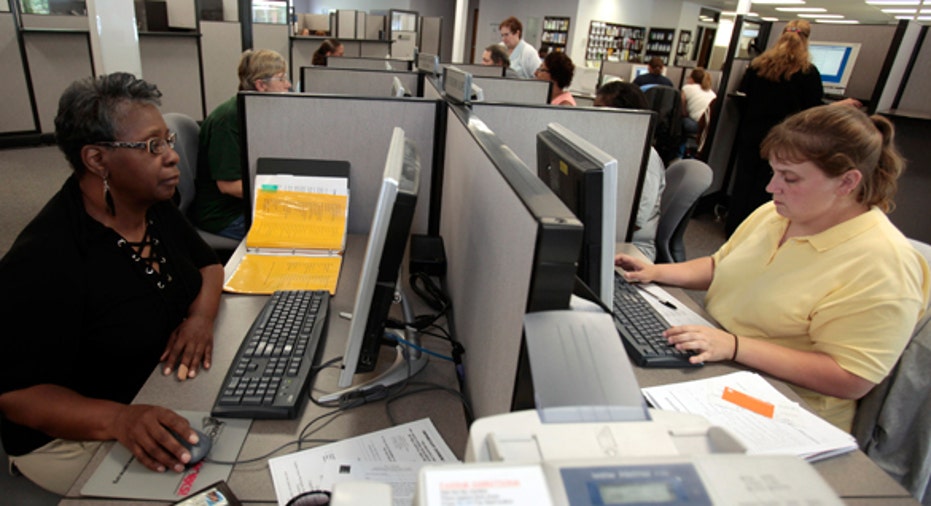7 Productivity Hacks for a Workplace That Delivers

My field of integrated communications is a service business that by definition must be productive. People’s deadlines must be met with deliverables executed on a critical path, with many layers of dependencies: Clients depend on teams to launch products, time financial news and outmaneuver competitors.
Companies like mine must produce before others can deliver and produce well, staying creative, insightful, accurate and proactive, even under pressure.
It’s a tall order. But over the decades I’ve had insights about what makes a team productive at its core. I’m sharing a few proven productivity hacks here in the hopes they’ll also help you.
Related: 5 Simple Low-Tech Hacks for Boosting Your Productivity
1. Set clear expectations with the company's culture.
Create a positive work environment that supports professional development. Arm employees with the tools they need to build and expand their expertise and create productive workspaces accommodating different work styles.
Encourage people to step up and take chances. Make it clear how success will be measured. My first productivity hack begins at the ground floor, in building a culture that is all about setting goals and getting the right things done.
2. Apply design thinking.
Productivity doesn’t simply happen. It comes from a constant focus on building it into processes and work flows as the organization evolves. Look at end results (measurable goals, timelines, success metrics) and set process in place even before pressing the “go" button.
It saps productivity to figure all this all out in real time. Designing it right into work flows from the very start can make the difference between achieving the goal or looking back and trying to figure out what went wrong.
3. Delegate.
The more you hand off to others, the more productive you'll be. If someone else can do a task, if you can show someone else how to do it or if somebody on your team can show someone else how to do an activity, then don’t do it yourself. Don’t get caught in the trap of thinking you have to do things because nobody else knows how.
If you feel that way, stop before you slide down a nonproductive slippery slope. Step out of your comfort zone and find someone else who’s willing to do the same -- and give him or her the job. Let the person know you’re there if needed.
And then be productive on something that’s a step up from what you’ve done before.
Related: The One Question Successful Business Owners Always Ask Themselves
4. Don’t multitask.
People refer to multitasking like it’s a good thing. It’s not. People's brains aren’t designed to do concurrent things well.
Flitting between tasks means flitting between brain modalities, and there’s always a switching cost as individuals move from one to another.
Schedule your time to minimize distractions or interruptions. Turn off your email. It’s an easy (and easy to rationalize) productivity suck.
Close your computer in meetings unless all you’re (really, truly) doing is taking notes. More and more people's lives are about interruptions and short bursts of attention. But real productivity comes from doing one thing at a time, doing it well and wrapping it up before moving on to the next thing.
5. Take a break.
The brain can grow weary with too much of the same sort of work; that’s why people sneak off to check email. When you finish something, reward yourself. Take a walk around the block. Check Twitter to see what’s trending. Go get that excellent cup of coffee. Head to the ping-pong table with a teammate and brainstorm while you hit the ball back and forth.
These aren’t wastes of time. They’re ways of refueling and reorganizing for your next deliverable. When you come back, sit down, turn off your email and envision what you need to do between now and the next break. A breath of fresh air may be more than a cliché. Weave one in and see what happens next.
6. Challenge assumptions.
Remote teams and virtual workers are the norm in today’s workplace, as team members often collaborate across different geographies and time zones. “How does that affect productivity?” people ask. My answer: “It’s a boost.”
Multioffice teams can script work flows that put time differences on the company's side.
When team members on different coasts are working on the same project, processes can begin in New York so handoffs are ready when Silicon Valley turns on the lights.
And New York staffers can count on their West Coast counterparts when they sign off. If productivity is the goal, challenge your staff to design processes to optimize for it. Old ways of doing things, like dinosaurs, sometimes need to evolve.
7. Optimize for meaning.
If you're not getting a sense of making an impact, a sense of satisfaction, even fun in your work, it’s hard to sustain productivity. Being productive isn’t about working harder and harder in the hope that you’ll eventually get there. It’s about hitting a flow state, mastery or something that brings a sense of a job well done.
If you really want to boost productivity, design your work to let you do things that you genuinely enjoy.
Many of the hacks above flow like a waterfall to this point: Creating a culture, designing work flows, delegating and the other tips all point to processes that help people match themselves to work that matters.
Build your teams with people who care about what they do and create an environment that makes it easier and more efficient for them to get that work done. Then enjoy the results as you watch productivity rise.
Related: 5 Things You Should be Doing to Have an Insanely Productive Week
This story originally appeared at Entrepreneur. Copyright 2014.



















